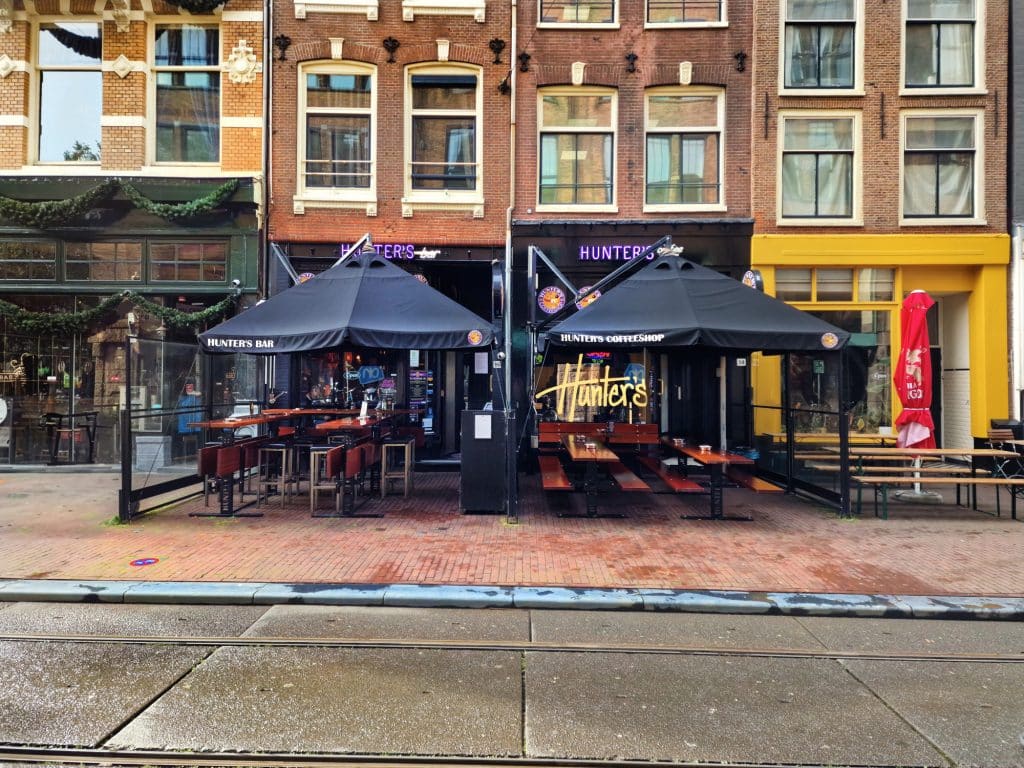In the vibrant streets of Amsterdam, the term “coffeeshop” holds a unique connotation, one that transcends the mere idea of a place to indulge in a cup of coffee. Instead, it serves as a hub where individuals gather not only for caffeine but also for an assortment of cannabis-related products.
This fusion of cultures and commodities has sparked curiosity and confusion among locals and tourists alike. Why is it called a “coffeeshop” and not a “wietshop”? Let’s delve into the historical roots to uncover the intriguing evolution of this nomenclature.
The Amsterdam of the 1970s: Birth of the Coffeeshop Culture
In the bustling streets of Amsterdam during the 1970s, a burgeoning counterculture movement took shape, characterized by a relaxed attitude towards cannabis consumption. It was within this socio-political landscape that the concept of the “coffeeshop” began to take form.
Find here the best edibles in Amsterdam.
Initially, these establishments, known as “coffee houses,” served as communal spaces where individuals gathered to socialize over cups of coffee. However, they soon became synonymous with the sale of cannabis products, earning them the moniker “coffeeshops.”
Understanding the Evolution: From Coffee Houses to Coffeeshops
The transition from traditional coffee houses to coffeeshops was facilitated by the Dutch policy of tolerance towards cannabis, commonly referred to as the gedoogbeleid. Under this policy, authorities turned a blind eye to the possession and sale of small quantities of cannabis within designated establishments.

This leniency allowed coffeeshops to gradually expand their offerings beyond coffee to include a diverse array of cannabis strains and products. As a result, these establishments became integral to Amsterdam’s cultural fabric, attracting locals and tourists alike.
Deciphering the Terminology: Coffeeshop vs. Wietshop
The distinction between a “coffeeshop” and a “wietshop” lies in their respective offerings and cultural associations. While a coffeeshop traditionally refers to an establishment where cannabis is sold alongside coffee and other beverages, a wietshop, on the other hand, is primarily focused on the sale of cannabis-related products.
The term “coffeeshop” thus reflects the historical roots of these establishments as communal spaces for socializing and cannabis consumption.
We created a top 10 coffeeshops in Amsterdam, find them here.
Parallels with Café Culture: A Linguistic Comparison
To contextualize the term “coffeeshop” within a broader linguistic framework, one can draw parallels with the French word “café.” Similar to the evolution of coffeeshops in Amsterdam, cafés in France have transitioned from being primarily associated with coffee to encompassing a wider range of beverages and social activities. Despite its literal translation as “coffee,” the term “café” now embodies the essence of conviviality and relaxation, much like its Dutch counterpart.
Conclusion: Embracing Amsterdam’s Coffeeshop Culture
In conclusion, the term “coffeeshop” in Amsterdam coffeeshop culture carries a rich tapestry of historical, cultural, and linguistic influences. Stemming from its origins as communal spaces for coffee enthusiasts, these establishments have evolved into iconic symbols of Amsterdam’s progressive approach towards cannabis.
By understanding the historical context and linguistic nuances surrounding the term “coffeeshop,” we gain a deeper appreciation for Amsterdam’s unique blend of tradition and innovation.
Embrace the essence of Amsterdam’s coffeeshop culture, where history, tolerance, and diversity converge to create an unparalleled experience. Whether you’re savoring a cup of coffee or exploring the myriad offerings of cannabis, let the spirit of Amsterdam guide you on a journey of discovery and enlightenment.